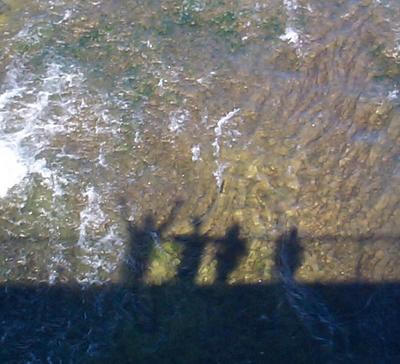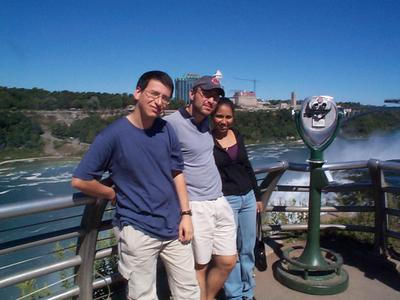The New South
This post was originally written for Watchblog.
The Gulf Coast has been destroyed by what most people now agree is the worst natural disaster in American history. Never before has so large a region been so utterly annihilated. Estimates of the rebuilding cost have grown exponentially, from $6 or $7 billion during the first few days to $150 billion now. Right off the bat, President Bush is seeking $40 billion to begin the rebuilding effort. No doubt we will have more accurate estimates in the months to come, but it is clear that a gigantic sum of public, non-profit, and private money will be spent to help Gulf Coast residents get their lives back. But how should it be spent?
With the caveat that these are preliminary thoughts in the preliminary stages of redevelopment, I offer some principles that governments and non-profits can follow to stretch their dollars farthest and create a sustainable long-term solution for the New Gulf Coast.
(1) Use market mechanisms. There is nothing more ineffective than money spent by fiat. Capitalist governments can somehow lapse into communism during a disaster, suddenly believing that they know best how to spend the people's money. The principle application of this is that victims should not be forced to return to the Gulf Coast in order to receive assistance. Those who wish to move away should be able to take some of the money that would have been spent on them along to their new homes. To do otherwise will perpetuate poverty by funneling those dependent on outside money into an area they might not otherwise choose.
(2) Compensate in accordance with loss. In the short run, the poor were hardest hit, and are accordingly receiving most of the short-term assistance. In the long run, however, property-owners have paid the biggest toll. A rebuilding program that focuses on rental housing and public-sector buildings will yield a region artificially dependent on outside money.
(3) Repeat after me: Big business is beautiful. Big business is big jobs, big construction money, and big municipal taxes. This doesn't mean that municipalities or states should prostitute themselves by offering huge tax incentives, but rather that businesses should be given wider-than-usual latitude to pick locations, buy property, and build facilities. Every regulation reduces the efficiency of industry and its job-creating power; right now, the Gulf Coast needs industry to be as efficient as it possibly can be. Secondly, governments should teach their money to follow the private money. As George Friedman writes for STRATFOR, the geographic importance of New Orleans dictates that a port must exist there. So industry will have to return to the region, and where and how it spends its money will be a good clue to bureaucrats of how best they can spend theirs.
(4) Get out as soon as possible. Outsiders, government and otherwise, should make it a point to give control of local institutions back as soon as possible. This is a basic tenet of international development, and the need for locally-led civil society is no less within our borders.
(5) Expect civility; punish lawbreaking. The saddest part, to me, of this whole disaster has been the Hobbesian response by many of the victims. Unlike New Yorkers after 9/11, they have been seen as selfish and roguish, lacking in social restraints. This may be an unfair media portrayal; I have no way of knowing. But assuming it is correct, people at all levels of society should demand high standards from those they encounter. The New Gulf Coast will be built of concrete and timber, but its real foundation must be the social contract that allows people to live in community with others.
(6) Allow for change. Don't assume the way things were was the best way. In a region as poor and vulnerable as the Gulf Coast, this should be self-evident, but it probably isn't. For instance, could we build parts of the new New Orleans on higher ground than the old one? The redevelopment effort shouldn't be a $150 billion CTRL+Z! Follow the examples of Chicago and San Francisco, and build something better in the place of what was destroyed.
*****
In closing, let me paint a picture of what will happen if the opposite is done. New Orleans and other cities will become a parody of their former selves; a crude imitation. Without new ideas, the old problems - both geographical and social - will be recreated, but the soul of cities will be diminished. A boom of public housing construction will make the Big Easy the easiest place to be unemployed and unproductive, and a few years after the units are shown glistening on TV screens they will be as run down and vacant as public housing anywhere. With heavy taxes, environmental restrictions, and red tape, business will be sluggish. Operations will be moved overseas if possible, and fewer and worse jobs will exist in the old population centers. What private redevelopment there is will occur out in the exurbs, with atomized SUV suburbs taking the place of now-unattractive downtowns. Without much aid, small business, hotel and luxury apartment owners will leave their lots vacant, or sell them to Target, or skimp on the rebuilding. And the rest of the U.S. will not see any benefit from their funds; no new residents, no new ideas, no New Orleans - at least not the one we knew and loved.
Is this an ugly picture? Yes, but not unrealistic. I was in decrepit Niagara Falls yesterday, and a great many other rust belt cities lie in very much the same condition. The opportunity to reverse New Orleans' three-decade decline, and to uplift many poor Gulf Coast communities, is upon us. Let's turn Katrina to good.
 We couldn't go into Canada, because with three foreigners and one A-Rab American, the chances of us getting back into America quickly were about as good as Governor Granholm's chances of being elected president (of the U.S., that is).
We couldn't go into Canada, because with three foreigners and one A-Rab American, the chances of us getting back into America quickly were about as good as Governor Granholm's chances of being elected president (of the U.S., that is).
 You know when you can take a picture this close to a waterfall that you're going to be the first one to die in the event of an earthquake.
You know when you can take a picture this close to a waterfall that you're going to be the first one to die in the event of an earthquake.
 The fearsome foursome look down into the potentially deadly waters of the upper Niagara River. Next time we visit, we'll release a canoe carrying a few panicked-looking dummies a hundred yards upstream from here, and watch the reaction when they reach the Falls.
The fearsome foursome look down into the potentially deadly waters of the upper Niagara River. Next time we visit, we'll release a canoe carrying a few panicked-looking dummies a hundred yards upstream from here, and watch the reaction when they reach the Falls.
 Chen Yi is a classmate and friend. She took most of the photos here, but not this one. You can see how weak the railing is - it's bending under her weight!
Chen Yi is a classmate and friend. She took most of the photos here, but not this one. You can see how weak the railing is - it's bending under her weight!
 The inseparable threesome: Fatih Bey, scion of the Ottoman Empire, yours truly, and Anita "The Peoples' Choice" Peoples. Like the rest of us, Anita is a first year student, but unlike the rest of us she's in biophysics and gets a stipend twice the size of any of our class. We economists have to live economically.
The inseparable threesome: Fatih Bey, scion of the Ottoman Empire, yours truly, and Anita "The Peoples' Choice" Peoples. Like the rest of us, Anita is a first year student, but unlike the rest of us she's in biophysics and gets a stipend twice the size of any of our class. We economists have to live economically.
 We arrived in Youngstown, at the mouth of the Niagara, just as their Labor Day parade was breaking up. We stopped at the Fife and Drum Pub long enough to get water and see the price of hamburgers.
We arrived in Youngstown, at the mouth of the Niagara, just as their Labor Day parade was breaking up. We stopped at the Fife and Drum Pub long enough to get water and see the price of hamburgers.
 After fleeing the hamburgers, we settled for ice cream and enjoyed the marine scenery at Youngstown dock. They have a U.S. Customs Videophone, so if you arrive with a cargo of contraband maple sugar, please have the politeness to call and report yourself so they can drive down and stop you.
We then drove back to Roch Vegas along scenic Rt. 18, on which we stopped for a proper meal (our first of the day) around 3:00pm. We had excellent buffalo wings and good sandwiches at the beach town of Olcott. Mine was the local specialty: Beef on Weck, a simple roast beef sandwich on a heavily salted bulky roll. Not shabby, especially after a long day outside. All in all, an excellent trip.
After fleeing the hamburgers, we settled for ice cream and enjoyed the marine scenery at Youngstown dock. They have a U.S. Customs Videophone, so if you arrive with a cargo of contraband maple sugar, please have the politeness to call and report yourself so they can drive down and stop you.
We then drove back to Roch Vegas along scenic Rt. 18, on which we stopped for a proper meal (our first of the day) around 3:00pm. We had excellent buffalo wings and good sandwiches at the beach town of Olcott. Mine was the local specialty: Beef on Weck, a simple roast beef sandwich on a heavily salted bulky roll. Not shabby, especially after a long day outside. All in all, an excellent trip.